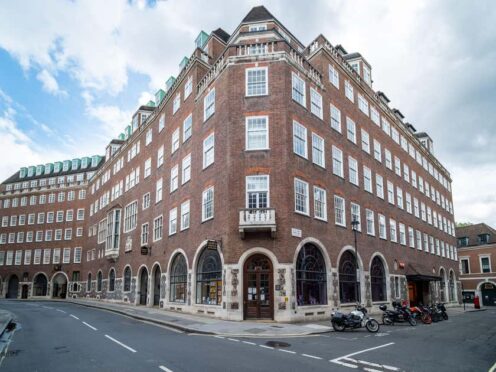
The Church of England will “happily engage” with the Government around its work with asylum seekers, a leading official said, as a diocese branded claims by an ex-vicar about a “conveyor belt of baptisms” as “nonsense”.
The case of Clapham alkali attack suspect Abdul Ezedi, who successfully challenged his asylum refusal after converting to Christianity, has led to allegations people are converting to Christianity to help them secure their stay in the UK.
Ezedi is believed to have been supported in his claim by someone from a Baptist church, rather than the Church of England, but the case has prompted strong debate on the issue of conversions overall.
A Conservative MP this week accused the Church of issuing “secret guidance for clergy supporting asylum applications” and the Archbishop of Canterbury of “scamming” the taxpayer.
Former immigration minister Robert Jenrick has spoken of conversions “aided and abetted by often well-meaning but naive vicars and priests”, while ex-home secretary Suella Braverman said during her time in office she “became aware of churches around the country facilitating industrial-scale bogus asylum claims”.
The Archbishop of Canterbury, Justin Welby, this week told of his disappointment at the “mischaracterisation of the role of churches and faith groups in the asylum system”.
The topic of asylum and the Church will not be formally debated at the upcoming meeting of the General Synod – known as the church’s parliament – later this month, but could be raised by a member for “some discussion”, said William Nye.
Mr Nye, Synod’s secretary general, told reporters at a briefing on Friday: “The agenda for the General Synod is set by the business committee of the General Synod, which will have set the agenda a little while ago to enable papers to be prepared.
“So as you’ll see, if you look at the agenda, there isn’t a formal item on the topic that you raise about asylum. It’s possible that it may come up, a member of Synod could ask a question in Synod questions, which would make it possible for there to be some discussion, but there isn’t room for a formal debate.”
A Home Office minister this week said training for asylum caseworkers in assessing the credibility of a religious conversion is being rolled out.
The Church said there has not been any direct contact from the Government on this yet but Mr Nye said the Church will “happily engage” with the Government on any matters of faith and religious literacy.

He told the briefing: “We’re always happy to work with the Government on anything and while, as the Bishop of Chelmsford has said, actual decisions on asylum are for the Home Office or, if contested, then for the relevant courts – nonetheless, if the Home Office wants to work with the Church of England on any matter like this we’ll happily engage with them.”
The comments come as the Diocese of Durham strongly disputed comments made by Matthew Firth, a former vicar at a Darlington church, who told The Telegraph that he “had to put a stop to the conveyor belt and veritable industry of asylum baptisms that was going on”.
A spokesman for the diocese said: “His claims of the church being a ‘conveyor belt’ of asylum seeker baptisms are nonsense.”
He said they had checked church records and found a total of 15 baptisms since 2014 of people who “may have been asylum seekers”, out of a total of around 80 in that period.
He said Mr Firth had not reported “anything amiss” during his “brief spell” at the church and, had he done so, allegations “would have been taken seriously and investigated”.
The spokesman said the diocese is “proud of the valuable work all our churches in Darlington do to ensure asylum seekers and refugees are welcomed”.
Meanwhile, Synod, which is taking place in London from February 23 to 27, will consider issues of biodiversity, safeguarding and progress on its work around blessings for same-sex couples.
It will also discuss racial justice, and the war in Ukraine and its wider impact.

Enjoy the convenience of having The Sunday Post delivered as a digital ePaper straight to your smartphone, tablet or computer.
Subscribe for only £5.49 a month and enjoy all the benefits of the printed paper as a digital replica.
Subscribe